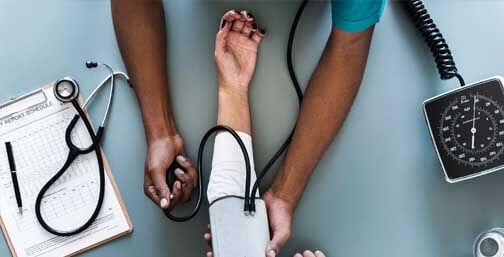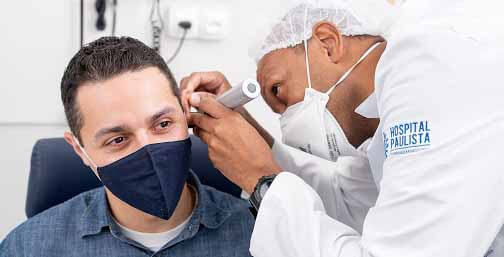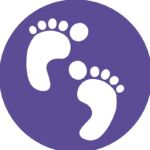Blog
Medical Vocabulary in Portuguese
- Thursday March 18th, 2021
- Posted by: Amanda Ennes
- Category: Learn the Portuguese Language and Portuguese Grammar

When visiting Brazil for the first time, many people tend to search for the basic sentences in Portuguese, such as ‘hi’, ‘how are you?’, ‘can you help me?’, ‘where is the toilet?’. And that is very useful because most of the population in Brazil does not speak any other language than Portuguese. However, what if you have a medical emergency? Maybe it is important to learn some medical vocabulary in Portuguese before your trip as well.
We may think we are always prepared for everything. But when we find ourselves in a foreign country without much help and needing medical assistance, knowing some basic vocabulary might be a life-saver when paying a visit to the emergency room.
Yes, public health care is universal and free for everyone in Brazil, including foreign tourists. You will not need to worry about medical expenses in case you need it. However, it will not be easy to find a doctor who speaks your native language. Better be prepared to explain your symptoms to them.
So, let’s learn some medical vocabulary in Portuguese.
Symptoms – Medical Vocabulary in Portuguese
Cansaço
When you feel tired frequently.
Coceira
Irritation of the skin causing a desire to scratch yourself.
Cólica
An involuntary and spasmodic contraction of a muscle, sometimes causing severe pain. In Brazil, it is very common to use this word for menstrual cramps.
Coriza
Excess nasal drainage. A thin fluid or thick mucus that comes out of your nose.
Diarreia
An intestinal disorder that causes frequent fecal evacuations, usually in liquid form.
Dor
Physical suffering or discomfort.
Falta de ar
Difficulty in breathing.
Febre
Body temperature higher than 38ºC.
Náusea
Stomach discomfort that may cause the sensation of wanting to vomit. Another word with the same meaning is ‘enjoo.’
Pressão Alta
High blood pressure.
Tosse
An involuntary way of expelling air from the lungs causing a harsh noise.
Vermelhidão
When your skin turns red because of an infection, rash, or irritation.
Vômito
The matter ejected from the stomach through the mouth.
Common diseases – Medical Vocabulary in Portuguese
Alergia
A damaging immune response by the body to which it has become hypersensitive.
Apendicite
Inflammation of the appendix.
Asma
A serious allergic disorder that causes difficulty in breathing.
Bronquite
Inflammation of bronchial tubes.
Cálculo Renal
Hard deposits made of minerals and salts that form inside your kidneys.
Câncer
A kind of several diseases in which abnormal cells start to grow uncontrollably, being able to spread to other parts of the body.
Cárie
When you have bacteria on your teeth, causing cavity formation on it.
Cistite
Inflammation of the bladder.
Conjutivite
Inflammation of the conjunctiva of the eye.
Depressão
Constant feeling of severe sadness.
Diabetes
A metabolic disorder in which the body does not properly process food. It is characterized by inadequate production or utilization of insulin.
Enxaqueca
An extremely severe headache, often accompanied by nausea and disturbed vision.
Faringite
Inflammation of the pharynx.
Gastrite
Inflammation of the stomach.
Gripe
An acute respiratory illness caused by viruses.
Hipertensão
A long-term medical condition in which the blood pressure is persistently elevated.
Laringite
Inflammation of the larynx.
Obesidade
The condition of being heavily overweight.
Osteoporose
A medical problem characterized by low bone mass.
Otite
Inflammation of the ear.
Pneumonia
Inflammation of the lungs.
Resfriado
A common and mild viral infectious disease that primarily affects the nose, throat, sinuses, and larynx.
Rinite
Inflammation of the mucous membrane of the nose caused by an allergic reaction.
Doctors – Medical Vocabulary in Portuguese
Alergista
A doctor who treats allergies.
Cardiologista
A specialist in the treatment of heart diseases.
Cirurgião
A medical practitioner qualified to practice surgery.
Clínico Geral
A medical doctor who provides primary healthcare to patients regardless of sex, age, or symptoms.
Dentista
A specialist in the treatment of teeth and gums.
Dermatologista
A doctor who specializes in conditions involving the skin, hair, and nails.
Gastroenterologista
A medical practitioner that treats disorders of the stomach and intestines.
Geriatra
A specialist who focuses on health care of elderly people.
Ginecologista
A doctor that treats women and their reproductive system.
Neurologista
A specialist in the anatomy of nerves and the nervous system.
Obstetra
The doctor that delivers babies.
Oftalmologista
A medical doctor who specializes in diseases affecting people’s eyes.
Oncologista
A medical practitioner qualified to diagnose and treat malignant tumors.
Ortopedista
The doctor who is specialized in bones, joints, ligaments, tendons, and muscles.
Otorrinolaringologista
Brazilians call it ‘Otorrino‘ for short. It is the doctor who is specialized in treating disorders of the ear, nose, and throat.
Pediatra
A doctor who takes care of children.
Proctologista
A medical doctor who diagnoses and treats disorders of the rectum, anus, and the entire gastrointestinal tract.
Psiquiatra
A medical practitioner specializing in the diagnosis and treatment of mental illness.
Urologista
A physician who specializes in diseases of the urinary tract and the male reproductive system.
Parts of the body that may need medical attention – Medical Vocabulary in Portuguese
Ânus
The opening at the lower end of the intestines where feces come out from.
Bexiga
A membranous sac in which the urine is retained.
Cabeça
The upper part of the human body, containing the brain, eyes, nose, mouth, and ears.
Coração
The organ that pumps blood through your body.
Dente
The hard structure attached to the jaw, used for biting and chewing.
Estômago
The organ that stores, dilutes, and digests food.
Faringe
A cavity that connects the nose and the mouth to the esophagus.
Fígado
An organ located in the upper right side of the abdominal cavity, involved in many metabolic processes.
Garganta
The passage from the mouth to the stomach, which includes the pharynx, esophagus, larynx, and trachea.
Gengiva
Connective tissue attached to the teeth.
Intestino
The lower part of the alimentary canal from the end of the stomach to the anus.
Laringe
An organ in the throat, containing the vocal cords.
Ossos
The pieces of the skeleton.
Ouvido
The organ of hearing and balance.
Pênis
The male genital organ.
Pulmão
The main organ of the respiratory system.
Rins
The bean-shaped organs in the back part of the abdominal cavity.
Vagina
The female genital organ.
Learn more vocabulary in Portuguese
Check our past articles to learn a few other special vocabularies in Portuguese. Keep an eye on Caminhos’ blog for future articles as well.
The Main Soccer/Football Vocabulary in Portuguese
Checklist: Brazilian Portuguese Business Expressions and Vocabulary
Vocabulary in Portuguese – Clothes, and accessories | Lesson 11
Learn the name of the colors in Portuguese | Lesson 10
Vocabulary – School Supplies in Portuguese | Lesson 6
Portuguese Vocabulary – Restaurant | Lesson 4
Portuguese Vocabulary – Let’s talk about food | Lesson 3
The ultimate list of carioca SLANG!
If you want to learn Brazilian Portuguese and immerse yourself in the Brazilian culture, join Caminhos Language Centre for Portuguese lessons. Caminhos offers high-quality Portuguese courses, in group and private lessons. We can also help you with student visa for Brazil and homestay in Rio de Janeiro.


 Deutsch
Deutsch Français
Français Português
Português Español
Español







